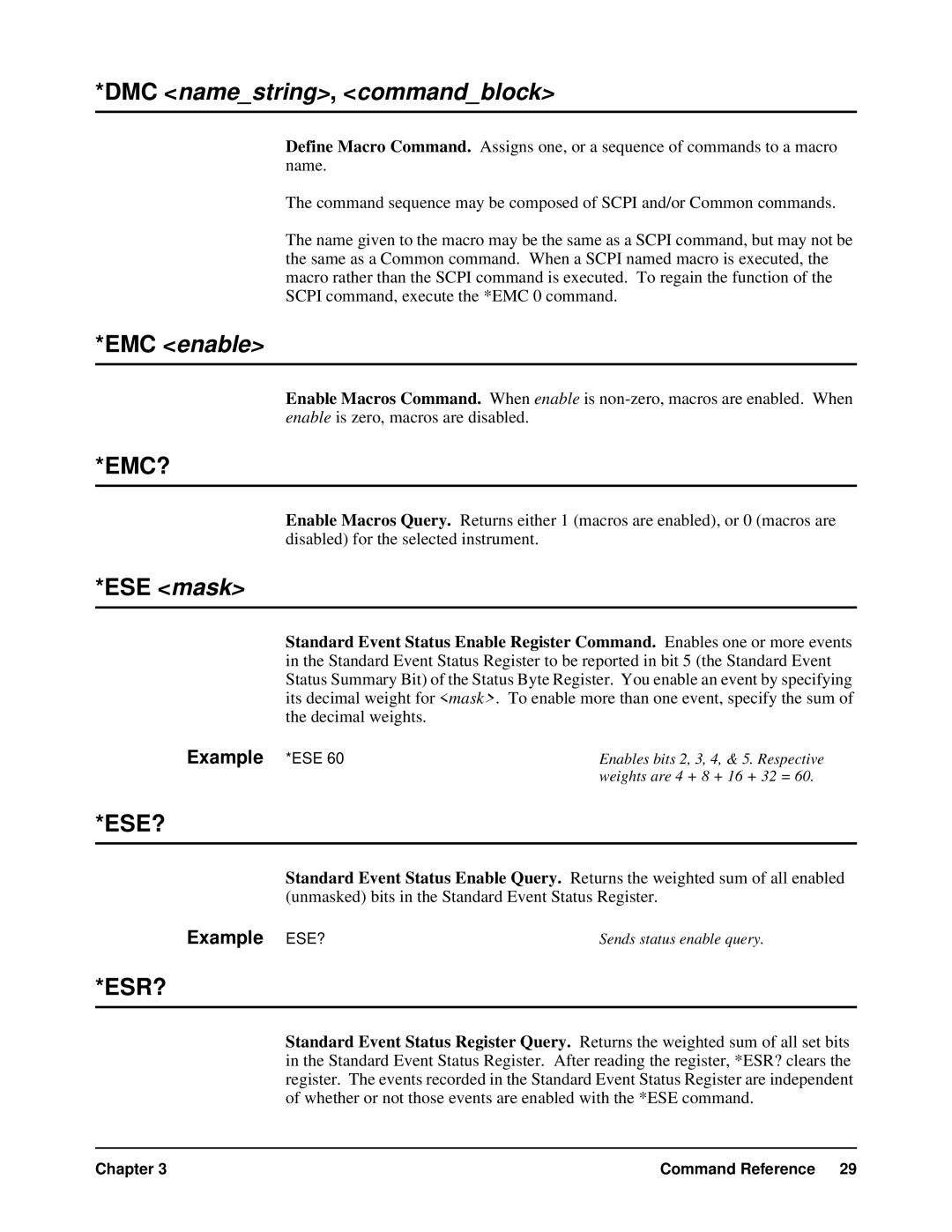
*DMC <name_string>, <command_block>
Define Macro Command. Assigns one, or a sequence of commands to a macro name.
The command sequence may be composed of SCPI and/or Common commands.
The name given to the macro may be the same as a SCPI command, but may not be the same as a Common command. When a SCPI named macro is executed, the macro rather than the SCPI command is executed. To regain the function of the SCPI command, execute the *EMC 0 command.
*EMC <enable>
Enable Macros Command. When enable is
*EMC?
Enable Macros Query. Returns either 1 (macros are enabled), or 0 (macros are disabled) for the selected instrument.
*ESE <mask>
Standard Event Status Enable Register Command. Enables one or more events in the Standard Event Status Register to be reported in bit 5 (the Standard Event Status Summary Bit) of the Status Byte Register. You enable an event by specifying its decimal weight for <mask>. To enable more than one event, specify the sum of the decimal weights.
Example *ESE 60 | Enables bits 2, 3, 4, & 5. Respective |
| weights are 4 + 8 + 16 + 32 = 60. |
*ESE?
Standard Event Status Enable Query. Returns the weighted sum of all enabled (unmasked) bits in the Standard Event Status Register.
Example ESE? | Sends status enable query. |
*ESR?
Standard Event Status Register Query. Returns the weighted sum of all set bits in the Standard Event Status Register. After reading the register, *ESR? clears the register. The events recorded in the Standard Event Status Register are independent of whether or not those events are enabled with the *ESE command.
Chapter 3 | Command Reference 29 |
